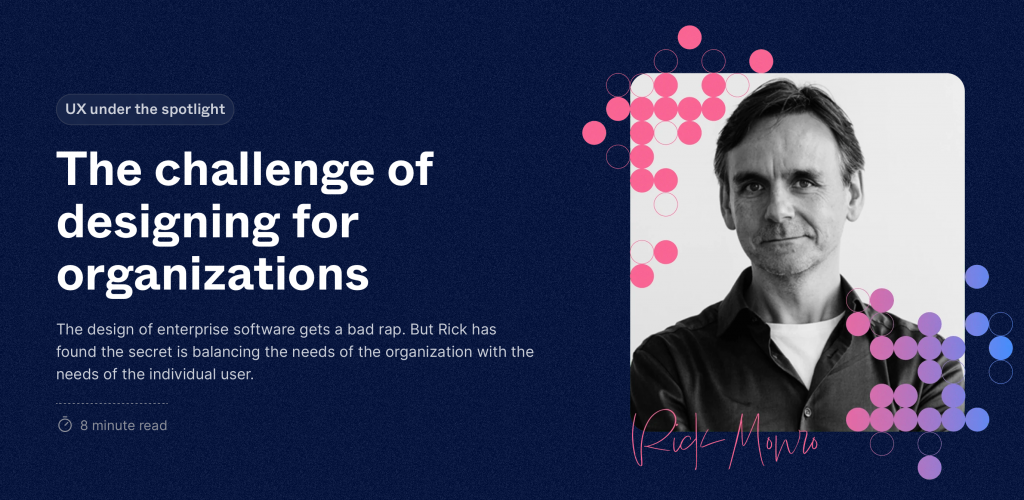I had a chat recently with my former boss at Fathom, Gareth Dunlop, for Issue #1 of the Journal of UX Leadership. I’m somewhat out of place amongst the great and the good interviewed there, but it was enjoyable to reminisce about my career-to-date (moreso in the original conversation), and my more recent career in product design (in the published interview).

Among the points which I (clumsily) made about enterprise UX:
- The ‘user’ is the customer organisation itself
- UX is just one element in the customer experience mix
- Your product is likely to be one of a suite of tools used to solve a broader problem
No news there for any designers seasoned in product design for enterprises.
What I did want to emphasise was that this context demands humility from designers.
Understanding what and how other functions in your organisation contribute is essential, as is building effective relationships with each.
The latter is something I have particularly tried to invest in working in product organisations.




